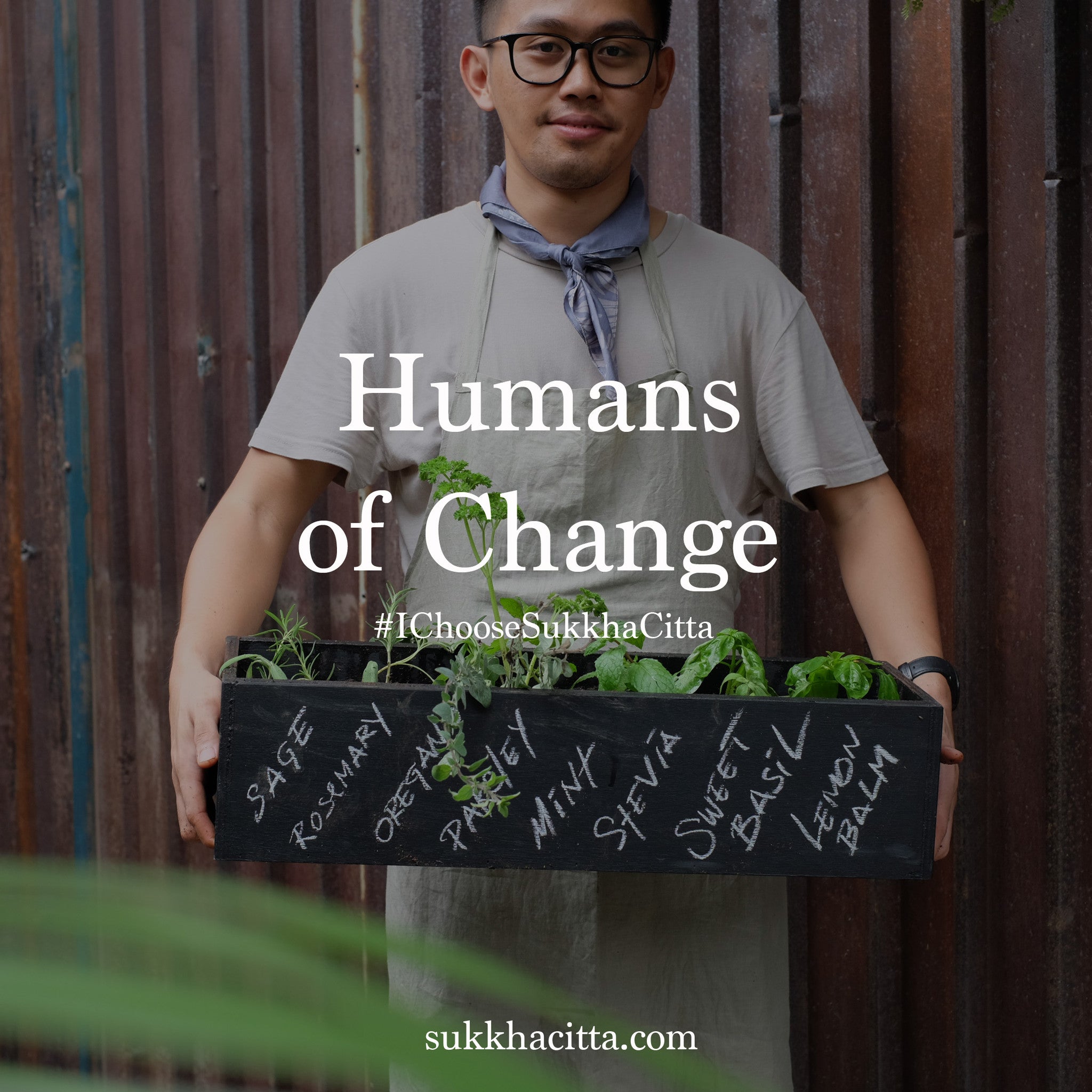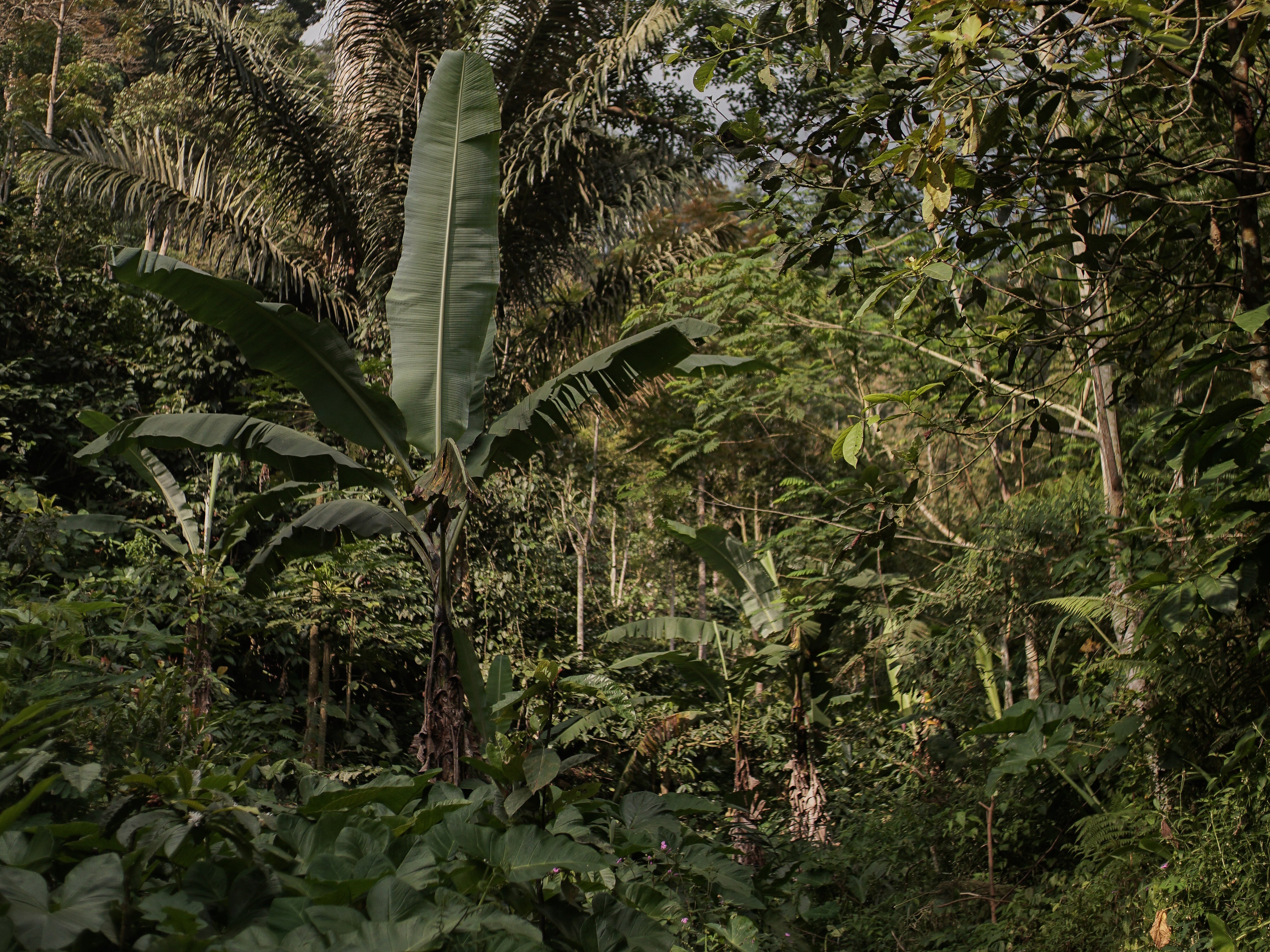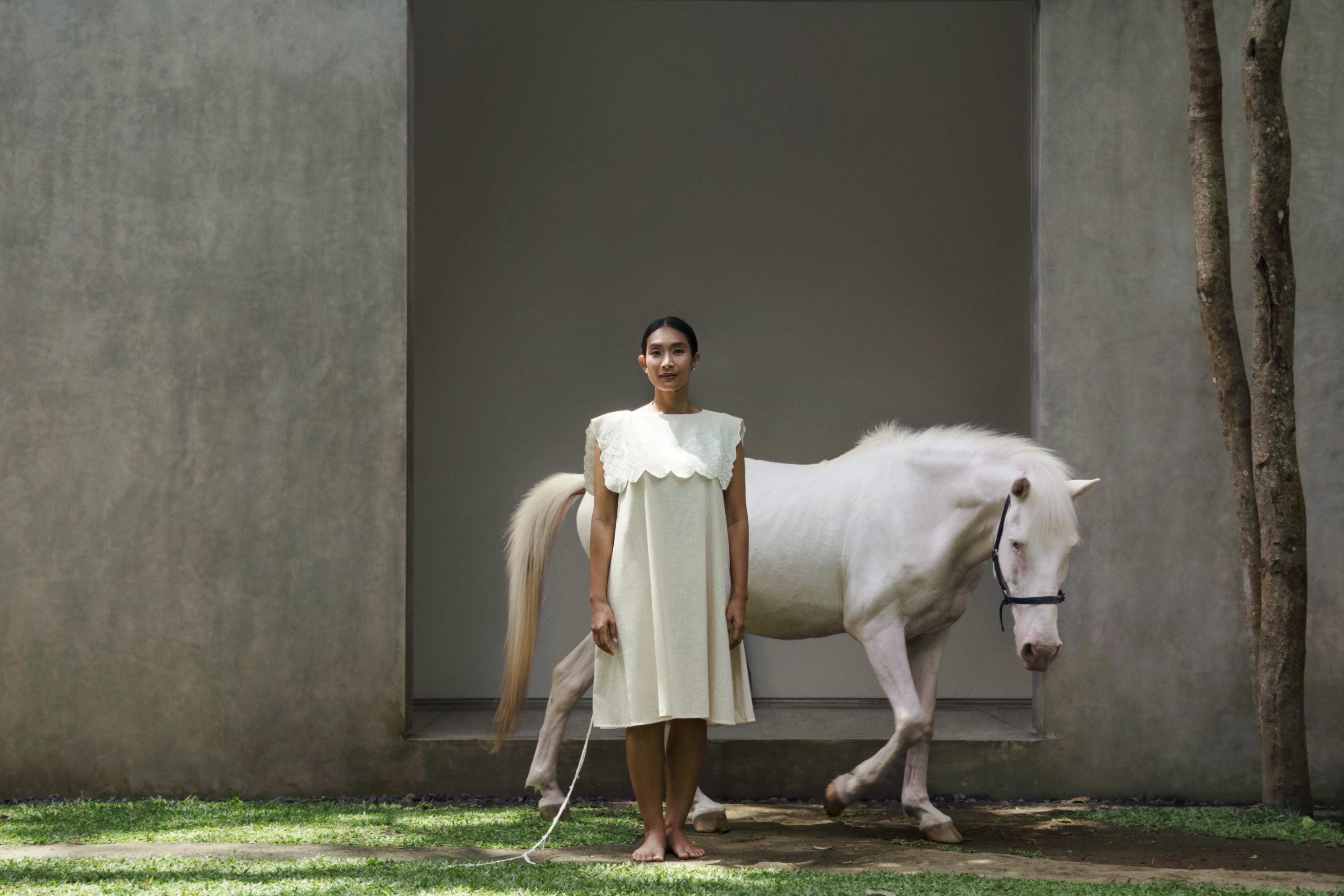
SukkhaCitta: Hi Azri! We know you were trained as an architect. What made you go in the direction of urban food education?
Azri Ithakari: Growing up, I always had an inclination to design. I always believe that thoughtful space design can add value to one's life, which led me to study architecture. However, I am not a stranger to the world of plant as my father is a researcher in the Bogor Agriculture Institute. I always remember fondly the conversations we had about farming and edible plant families. I guess that seed secretly grew in me (pun intended!).
Upon graduation, I interned in Tokyo and later moved to Bali as I longed to be closer to nature. This exposure to different spaces brought a deeper understanding of different issues that we face as urban dwellers today. Notably, the disconnection that exist between where we live and where our most basic need, food, comes from. Again, the notion of space inspired me to share the fundamental ideas behind urban gardening to share how growing food can fit today's lifestyle.
Can you share about the hardest struggle you encountered as you strive to establish your new identity as an urban farmer? What helped you to hustle and keep going?
AI: Actually, it's the other way around. I always associated my identity with gardening since it has always been part of my life. Getting my hands dirty with soil to plant food has been my most cherished memory.
I actually find architecture to be fundamentally similar to urban farming. When you talk about architecture, you talk about space and how we can explore the qualities inside and around it to better the lives of the people living in it. That's the same thing with urban farming! You thoughtfully think of ways to maximize the possibilities of better air circulation and natural light so the plants can live in the environment where it is planted. 
The biggest hurdle as a farmer is actually the responsibility of maintaining life. Working with living objects means that you have to constantly think of ways to make sure the ecosystem supports it, and that's often hard as you deal with natural elements such as air, water, soil and light. In a way, nothing really is under your control and it teaches you to do your best while surrendering.
What keeps me going is knowing that the food we grow will be consumed by people. They will put it inside their body and it becomes a part of them. For me, that is a beautiful realization and it gives me strength to continue knowing that our plants will benefit others.
What are the most important things that you learnt through this experience?
AI: The power of community! I truly enjoy connecting with other youths who share my concerns regarding the future of the food industry. They mostly do not come from agriculture background, but they use their strengths to improve the practice because they see it as a necessity.
This allows us to learn from one another, benefiting from how we look at food and how we can solve issues that arise. Whenever there is a challenge, we would lift up our sleeves and help one another. I am very grateful to have them, and together I think even our lofty goals are possible.
Most importantly, it gives me an understanding of the power of sharing knowledge. We have the responsibility to keep the cycle of knowledge going, empowering the young generation to act based on what they believe in. Only when more joins the slow food movement can we achieve a more sustainable food production system.
What does happiness mean to you?
AI: At its core, it is when what you do and say are true to the things I believe in. But it boils down to being grateful for what you have, where you are and who you're with. Life naturally gives you ups and downs, but when you are true to yourself and remain grateful then the imperfections become something that brings about happiness.
What do you wish to say through TAN-EUH?
AI: Through TAN-EUH, we want to invite urban dwellers to experience farming in micro-scale, hoping this can bring more appreciation to the efforts that go into growing their food.
Our big dream is to create impact by improving the lives of small scale seed farmers throughout the Archipelago who cultivate seeds sustainably and organically. We show our support by both using and exchanging knowledge on how they can cultivate better seed.
Sometimes, we do not realize the importance of these farmers in our lives. Without them, we would not be here. Without us, they wouldn't be able to build a livelihood. We are interconnected.
What's next for TAN-EUH?
AI: We are planning to design more urban farming tools which have aesthetic, ergonomic and economic value to make tomorrow's urban farming cool and desirable for the young generation. We are also trying to make the city as our farm and laboratory in growing food, bringing the food closer to where we live!

Anything else you would like to share?
AI: My father said something to me randomly some time ago, ''keep thinking or doing something''. I find so much truth and wisdom in this simple sentence. It conveys the need to appreciate the time that life has given you by being productive no matter what your situation is. No excuse, we all get the same time. Never look at what others have or don't have but what you can do more. Try not to waste your time and keep doing something of value - I believe then good things will follow.
-
Azri is the founder of TAN-EUH, a brand that focuses on bringing farming knowledge to city dwellers to encourage a more sustainable approach to food. He is often found behind edible bushes, looking for ways to improve the urban farming experience.






